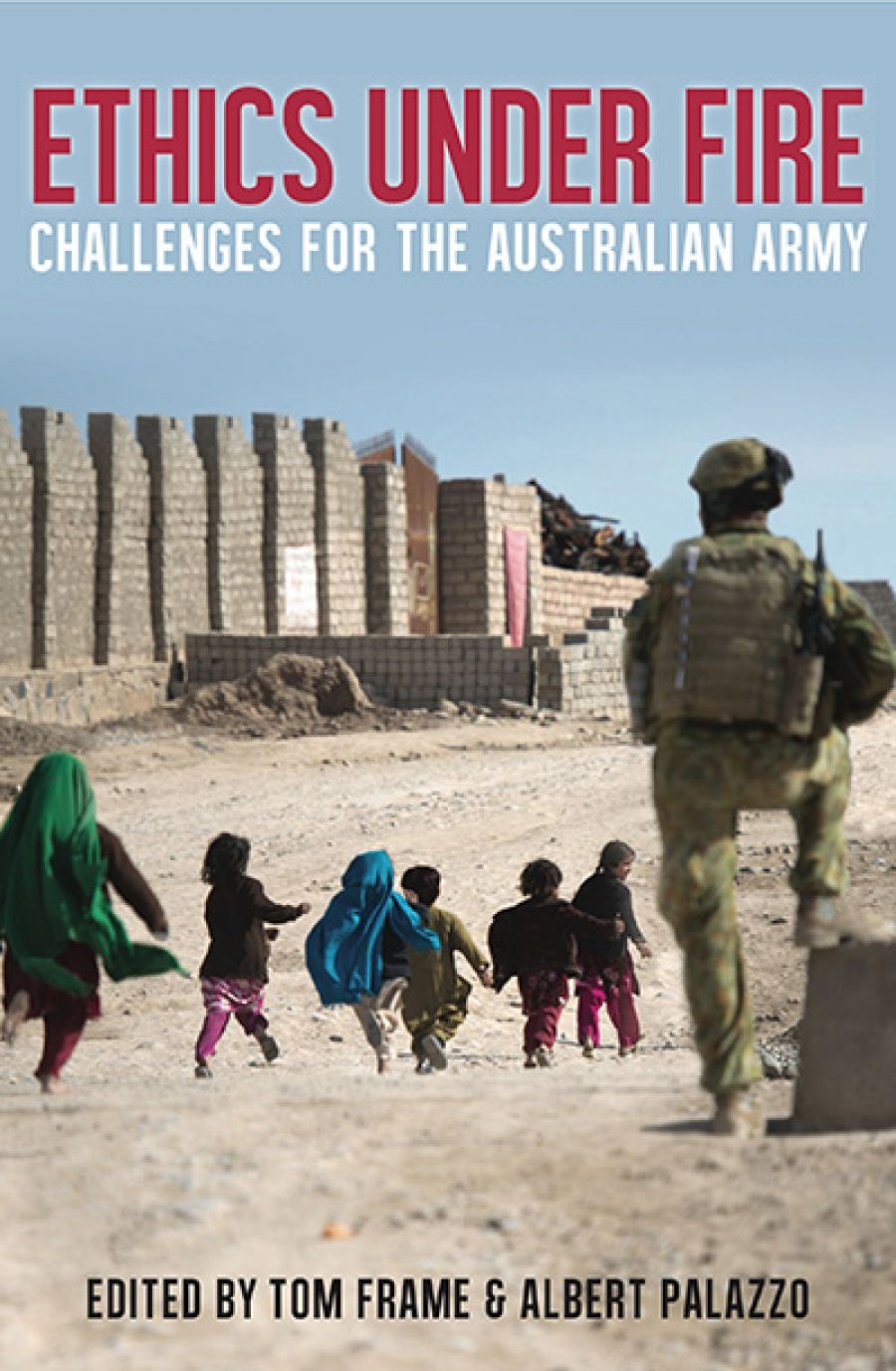
- Free Article: No
- Contents Category: Australian History
- Custom Article Title: Deborah Zion reviews 'Ethics Under Fire: Challenges for the Australian army' edited by Tom Frame and Albert Palazzo
- Custom Highlight Text:
In July 1942 the Police Battalion 101 was ordered to murder all the older men, women, and children in Józefów, in Poland. Major Wilhelm Trapp, a member of the Nazi Party, led the battalion. He made an unprecedented offer. If any older members of the battalion felt unable to proceed, they could be excused. Twelve men ...
- Book 1 Title: Ethics Under Fire
- Book 1 Subtitle: Challenges for the Australian army
- Book 1 Biblio: UNSW Press, $39.99 pb, 320 pp, 9781742235493
In addition, there remains the complex question of what constitutes ethics. Should the army resort to utilitarianism, or rights-based ethics, or the development of inner virtues so fundamental to Aristotelianism? Underpinning these issues is the relevance of ethical thinking in the first place. As Deane-Peter Baker suggests (following Cook and Sykes): ‘We are often put in circumstances of hearing philosophical talks. Often these are wonderfully logically developed, conceptually clear, rigorously argued – and in the end professionally irrelevant.’
What then emerges in many of the contributions is the ethics of professional formation, so fundamental to Aristotelian philosophy, as the moral cornerstone of the soldier. This is particularly relevant in the chapter concerning military ethics education by James Cullen, and Tom McDermott’s contribution, ‘Avoiding the Descent into Barbarism’.
McDermott, however, reinforces how ethical virtues may be eroded by the relationship between group culture, situational pressure, and individual agency.
The nexus described by McDermott has become more complex with the introduction of new technologies as the breadth of terror and war expands through the use of social media, described in Part Six of the volume. Perhaps most chilling of all is the idea that physical ‘enhancements’ will create a new kind of warrior.
 An Australian Army soldier in a village in the Tangi Valley, Afghanistan (Wikimedia Commons)
An Australian Army soldier in a village in the Tangi Valley, Afghanistan (Wikimedia Commons)
Such is the subject matter of Matthew Beard’s contribution, ‘The Ethics of Enhanced Human Performance’, an idea sadly familiar to us from sports scandals. Beard relocates this technology into the military. Strangely, he suggests that the risks involved are ‘not insurmountable if suitable and adequate safeguards are observed’. Beard does indeed list some reasons why enhancement might be ethically promising: for example, if individual soldiers are more capable, force size may be decreased. Soldiers who can cope better with fatigue might make more ethical decisions, although sleep derived. However, to his credit, Beard does suggest that reliance on the chemically enhanced self runs contra to the values of the Australian army, such as courage, initiative, respect, and teamwork. He also asks the disturbing question about ownership of such a body once a soldier is discharged. Would for example, total physical autonomy be restored to a person so altered?
The juxtaposition of the creation of the new soldier and the use of social media on the one hand, and the poverty and desperation that war causes on the other, is a call to consider carefully how the traits of ethical conduct might be inculcated in a world that is increasingly chaotic. Michael Ignatieff states that ethical behaviour ‘is not an optional extra ... it is the absolute core of what defines ... the warrior profession’. As the Australian military increasingly engage and rely upon good relationships with local residents from culturally diverse communities in places like East Timor and Iraq, as well as diverse allied forces and humanitarian agencies, the call for appropriate ethical and cultural education is a clear one. This volume provides a way forward that goes beyond the theoretical. In so doing, it brings ethics into a world that is both confounding and constantly changing.


Comments powered by CComment